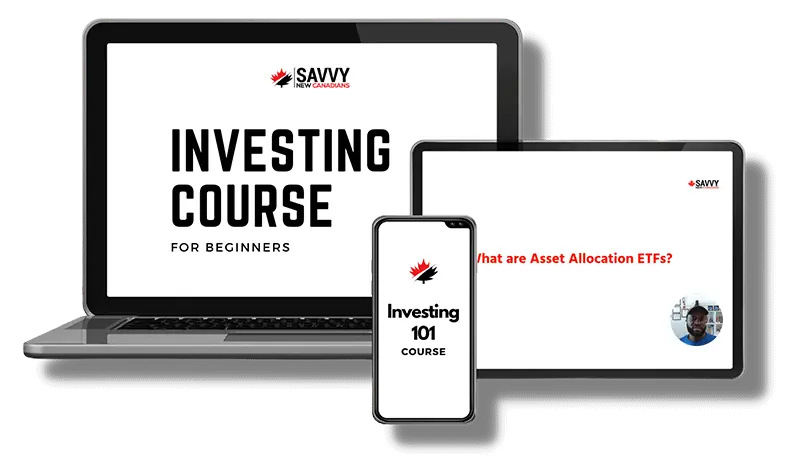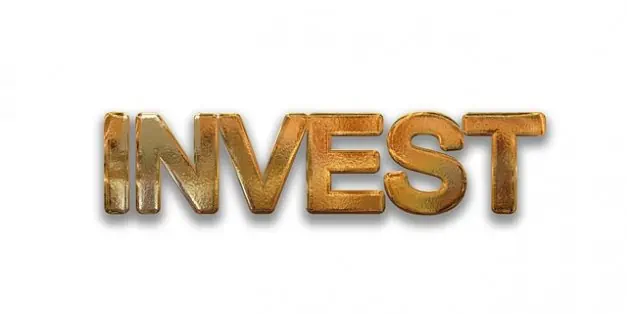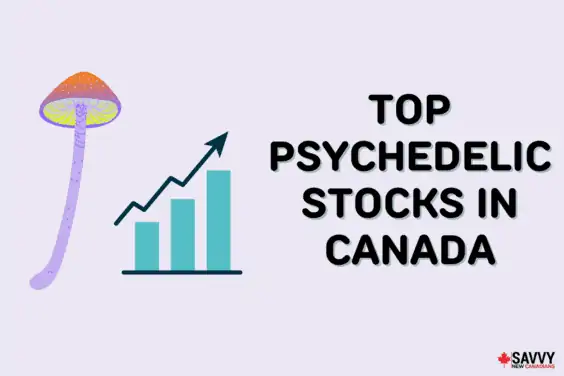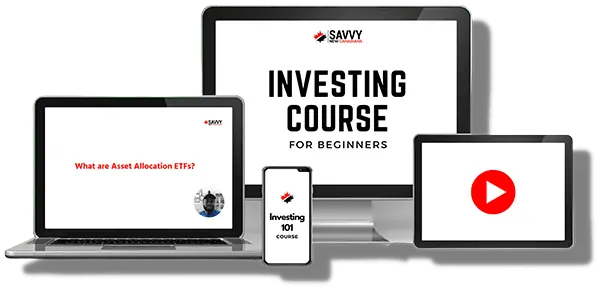For passive investors in Canada, nothing can beat the simplicity of an index fund. These assets track major indexes like the S&P/TSX 60 or the S&P 500.
You have probably also heard of exchange-traded funds or ETFs. These assets provide exposure to a broader range of stocks or bonds.
There is quite a bit of overlap between ETFs and index funds. This article will explain the differences and similarities between two of the best investment assets in Canada.
ETF vs Index Fund
ETFs
As their name suggests, ETFs are funds that trade on the major stock exchanges. These funds hold baskets of stocks, or other assets like bonds or futures contracts, providing instant diversification to your portfolio.
ETFs provide everything that individual stocks do, including capital gains, dividend payments, and even options trading. The major difference is the diversity of assets held in an ETF and that these funds also charge a fee called a Management Expense Ratio or MER. This is the fee that is charged by the ETF provider for owning the asset.
How do ETFs and index funds overlap? A large number of index funds are actually ETFs that track the major indexes. You can think of ETFs as the broader categorization, and index funds are a sub-category of ETFs.
Index Funds
As mentioned, index funds are low-maintenance, passive investments that aim to replicate the performance of the major indexes. For example, an S&P/TSX 60 index fund will provide you with exposure to the 60 largest companies on the TSX in Canada, all in one fund.
Index funds typically have a lower MER because they do not require as much active management. These funds also pay out dividends and allow options trading if they are ETFs.
Not all index funds are ETFs, though. Mutual funds can also be index funds, which are an entirely different asset class from ETFs.
In the case of an index mutual fund, nothing changes for the investor except that these funds are not listed on exchanges and are only provided by the manager of the fund. Mutual funds also frequently have a higher MER than ETF index funds.
ETF vs Index Fund: Differences
ETF vs Index Fund: Asset Holdings
The main difference between an ETF and an index fund is the focus of the holdings. By definition, index funds track major indexes. ETFs can track sectors or categories of stocks like dividend aristocrats or commodities.
ETFs also do not have to hold stocks; they can hold bonds, futures, or even other ETFs.
ETF vs Index Fund: Fees
Both ETFs and index funds charge fees or MERs to the investor. The difference is that index funds typically come with a much lower MER.
Why is this? MER is usually directly related to how much fund managers need to maintain the ETF.
For indexes like the S&P 500, there is very little to do aside from re-balancing on a quarterly basis. An actively managed fund requires a lot more work and upkeep, so the MER tends to be higher.
ETF vs Index Mutual Fund
For many investors, when they think of index funds, they are thinking of index mutual funds. ETFs and mutual funds are often grouped together, but they have some major differences. ETFs can be traded on major exchanges, while mutual funds are pools of investor capital managed by the mutual fund provider.
ETF vs Index Funds: Similarities
Both Provide Diversified Investments
Both ETFs and index funds provide diversification for investor portfolios. Even if an ETF is not an index fund, it can provide you with a broad range of stocks that can replicate a sector or specific industry.
Less Volatility
Both ETFs and index funds are also less volatile than individual stocks. This is especially true for index funds, which historically have managed to provide investors with steady average annual gains.
The downside is that choosing the right individual stocks can provide much more upside and outsized gains than if you just hold an index fund. This is a risk vs. reward decision to be made by each investor.
Pros and Cons of ETFs
ETFs are wonderful investments for people who want to be passive investors. You can automatically add money to your ETF holdings each month or even each week and never have to worry about selling them.
With one asset, you can have exposure to an entire sector, index, or even total stock markets. For those who do not have time to stay up to date with individual companies, ETFs are a great way to own them all.
They also offer immediate dividend reinvestments to compound your investment over time, saving you commission fees.
Unfortunately, it’s not all rosy for ETFs. Their long-term gains are often dwarfed by individual stocks. As well, ETFs can provide lower dividend yields than holding the stocks themselves.
Another issue with ETFs is you will notice that many will often hold the same stocks. If you buy multiple ETFs, you might just be duplicating your allocation to the same companies.
On top of that, with an ETF, the fund is chosen for you. You are trusting the ETF provider to choose the right investments in their funds.
Pros and Cons of Index Funds
Index funds are equally wonderful as they are the definition of set-it-and-forget-it investments. Investing in the entire index can provide a much safer floor for your investment, even more so than sector ETFs.
They also typically come with a much lower MER than standard ETFs and mutual funds. How good are index funds? Even Warren Buffett says that most people should only be investing in low-cost index funds to build their wealth!
One problem with index funds is that their long-term returns pale in comparison to a portfolio of individual stocks or even ETFs. Index funds are seen as the benchmark of investment performance, but that does not mean you should expect them to make you a millionaire overnight.
ETFs vs Index Funds vs Mutual Funds
Mutual funds are another type of asset that fits in the Venn diagram of ETFs and index funds. Some mutual funds are index funds, and some ETFs are index funds. However mutual funds and ETFs are strikingly different.
These funds are offered privately by banks or financial management companies like Manulife. While they hold similar assets to ETFs, mutual funds have higher fees and are much more actively managed.
This active management can result in higher long-term returns than index funds and even ETFs. If you have a financial advisor with a big Canadian bank or financial management company, chances are you have some of your investments in their mutual funds.
There is no wrong answer when it comes to choosing between ETFs, index funds, or mutual funds. Each of these provides beginner investors with exposure to a broad selection of stocks while protecting their portfolio against day-to-day volatility.
FAQs
Generally speaking, index funds are safer than most ETFs unless that ETF is an index fund itself. There are some ETFs that can be safer, like bond ETFs which provide monthly coupon distributions.
In terms of fees, ETFs are usually more expensive. Index funds typically have some of the lowest MERs among any ETF or mutual fund.
The S&P 500 is the benchmark stock index in the United States that holds 500 of the largest publicly traded American companies. S&P 500 ETFs replicate the benchmark index by holding all 500 stocks in one asset.
In Canada, if you hold ETFs in a non-registered account, you will pay taxes on any dividend distributions you collect. You only need to pay taxes if you have capital gains on your ETFs, which means you sell them for a profit.
If you own index funds in a non-registered account, you will pay taxes on dividend distributions as they are considered regular income. Just as with ETFs, you will not pay capital gains taxes on index funds unless you sell them.
Related:






